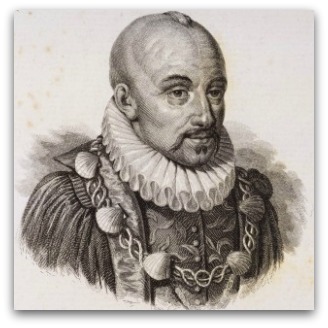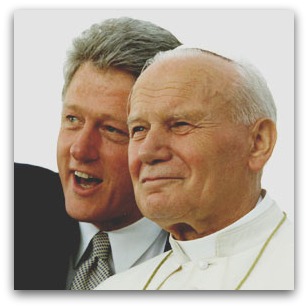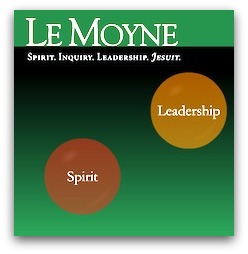Keywords: World Youth Day
There are more than 200 results, only the first 200 are displayed here.
-

MARGARET DOOLEY AWARD
- Patrick McCabe
- 27 July 2011
11 Comments
Ignatius of Loyola and Michel de Montaigne both had privileged upbringings. But where Montaigne was committed to personal fulfillment, Loyala was devoted to service. I, too, had a privileged upbrining and education. I'm not yet sure whose example is best to follow.
READ MORE 
-

AUSTRALIA
- Bruce Pennay
- 18 July 2011
8 Comments
50 years ago this week, migrants and refugees from Eastern Europe rioted at the Bonegilla migrant reception centre outside Albury-Wodonga. The Federal Immigration Minister said such behaviour was not tolerated in this country, but investigation prompted public sympathy for the demonstrators.
READ MORE 
-

EUREKA STREET TV
- Peter Kirkwood
- 15 July 2011
3 Comments
READ MORE 
-

EUREKA STREET TV
- Peter Kirkwood
- 15 July 2011
Austrian lay Catholic theologian, Wolfgang Palaver, is today one of the world's leading exponents of French-born philosopher Rene Girard's philosophy about the relationship between religion and violence. But Palaver had unlikely beginnings for his work as a professional Catholic theologian.
READ MORE 
-

RELIGION
- Frank Brennan
- 02 May 2011
1 Comment
Jesuit Social Services recently set up a project in Alice Springs to resource the local parish and local Aborigines who want to take more control of their own lives. If we are to get our teeth into issues of acute injustice, we need to eyeball both the decision makers and those affected by those decisions.
READ MORE
-

RELIGION
- Andrew Hamilton
- 29 April 2011
15 Comments
John Paul II was as much a Polish Catholic as Mary MacKillop was Australian. His moral force eroded the legitimacy of the Communist regimes of Eastern Europe. The controversy about his beatification is not about his virtue or historical significance, but about his legacy to the Church.
READ MORE 
-

RELIGION
- Henri Boulad
- 08 March 2011
2 Comments
It is an absurd confrontation. On one side, a man with empty hands; on the other, a well organised force equipped with batons, helmets and shields. I can still see the young man, like a lion, throw himself against the wall of shields, face tensed, eyes flashing, heart steeled.
READ MORE 
-

MARGARET DOOLEY AWARD
- Jonathan Hill
- 01 December 2010
5 Comments
Dhurga is a dead language. At my school however it is taught to every student, Indigenous and non-Indigenous. A subject like this is quite radical in an education system that is heavily focused on churning out workers rather than thinkers.
READ MORE
-

ARTS AND CULTURE
- Tim Kroenert
- 18 November 2010
1 Comment
The youths take fearful strides into adulthood, embracing responsibility through necessity, unprotected by parents, teachers or mentors. Like many fictional 'chosen ones', Harry Potter is an allegorical Christ figure.
READ MORE 
-

AUSTRALIA
- John Warhurst
- 11 November 2010
12 Comments
Nine prime ministers have been observant Christians. Two have been conventional Christians. Ten have been nominal Christians. Five have been articulate atheists or agnostics. One was a nominal atheist or agnostic.
READ MORE
-

RELIGION
- Frank Brennan
- 04 November 2010
15 Comments
Cardinal Pell, with whom I have voiced disagreement, preached superbly at the mass of thanksgiving after the canonisation of Mary MacKillop. 'She does not deter us from struggling to follow her.' As we wrestle with the common good, let's make a place for all our fellow citizens.
READ MORE
-

ARTS AND CULTURE
- Brian Matthews
- 06 October 2010
1 Comment
Fiction writers have to arrange events so that they achieve the required outcome without stretching credulity. Yet real life routinely throws up sequences so bizarre that a fiction writer wouldn't dare to own them. Try this one.
READ MORE 